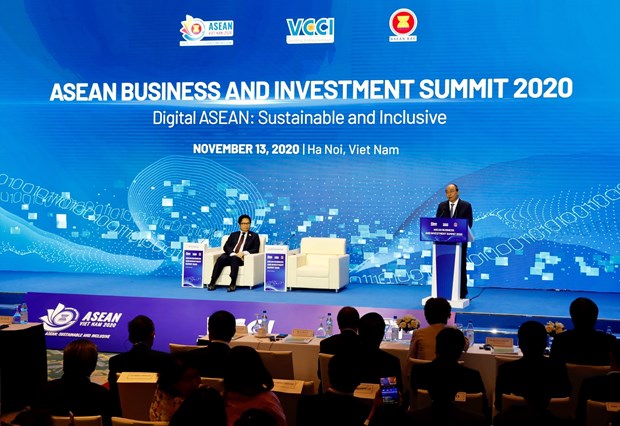
HÀ NỘI — A conference on the importance of the fourth industrial revolution in stimulating growth, trade and investment against the backdrop of the shock of the coronavirus and the many challenges facing the region was held yesterday in Hà Nội.
Themed 'Digital ASEAN: Sustainable and Inclusive', this year's event was organised by the Vietnam Chamber of Commerce and Industry (VCCI) as part of the ASEAN Business and Investment Summit 2020.
At the event, speakers and participants discussed a number of topics including economic outlooks, a growing trend of Environment, Social, and Governance (ESG) in the region, technology and the future of work in ASEAN as well as sustainable agri-development and inclusive growth.
The digitalisation of commerce, trade wars, the fourth industrialisation and the raging pandemic have presented Việt Nam, as well as many countries around the world, with unprecedented challenges and opportunities in realising their sustainable development goals, said VCCI's chairman Vũ Tiến Lộc.
Economic recovery and pandemic control require the business sector and governments and nations to work closely together.
The event was an opportunity for policymakers and business leaders to talk about ASEAN's economic outlook in the near future and to shares ideas and solutions on social investment and management issues.
Christophe Bahuet, UNDP Deputy Regional Director for Asia and Pacific, said despite setbacks due to the pandemic the region would continue to see strong sustainable economic development in the years to come.
Bahuet insisted on the importance of governments in cutting down the use of fossil-fuel energy, income inequality and improving transparency governance.
The UN has been and will continue to work with the business community to develop green economic models and take advantage of opportunities to build a stronger and sustainable ASEAN, he said.
Speaking via videoconference, Malaysian Prime Minister Tan Sri Muhyiddin Yassin said COVID-19 generated unprecedented challenges, and policymaking has changed to adapt to its effects.
Suitable policies should be issued and mechanisms must be sustainable and inclusive to ensure that all segments of the economy are highly resilient, he said. — VNS